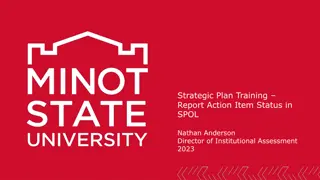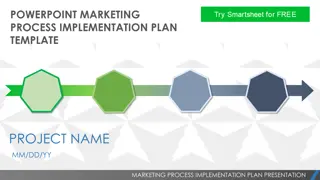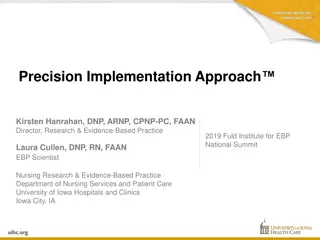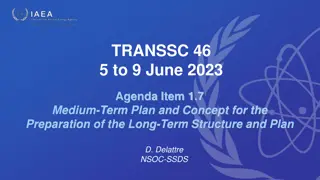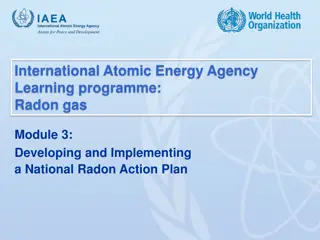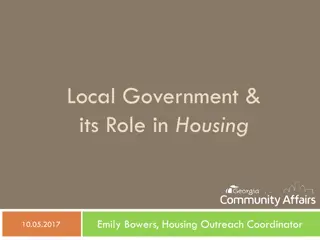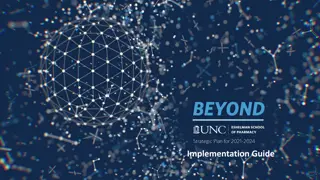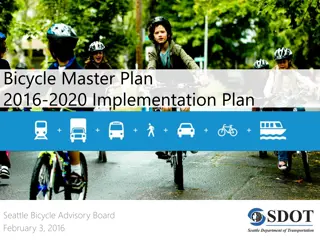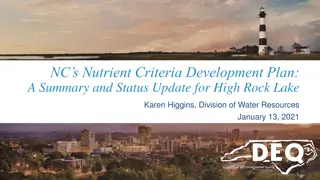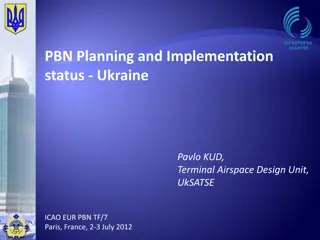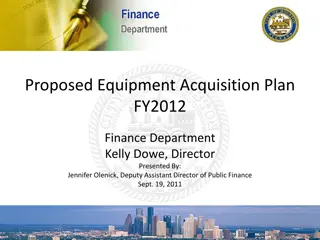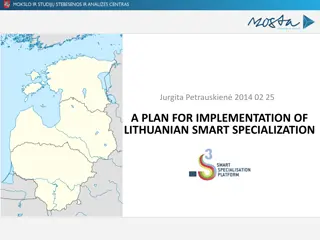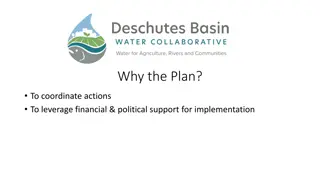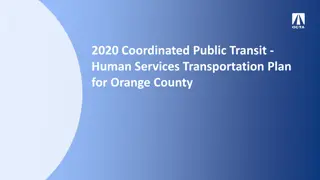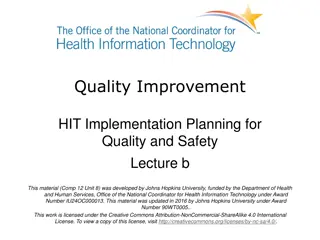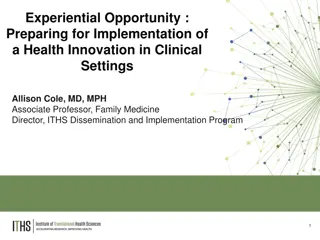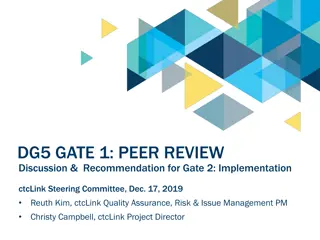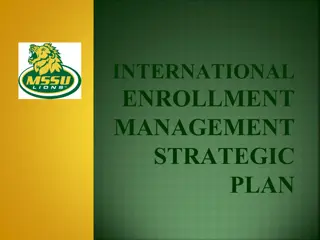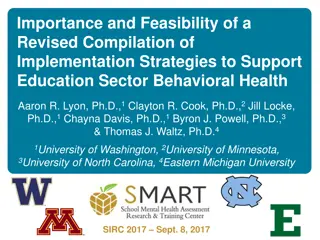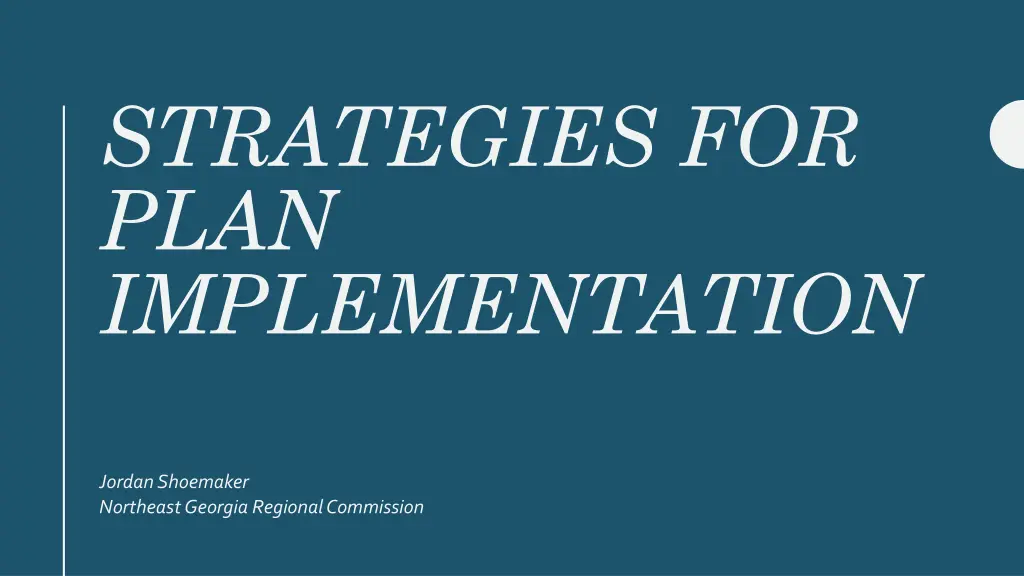
Effective Strategies for Implementing a Long-Term Plan
Learn key strategies for successful plan implementation, including team engagement, regular reviews, maximizing success, building a diverse dream team, and keeping the plan alive through ongoing evaluation and adaptation.
Uploaded on | 1 Views
Download Presentation

Please find below an Image/Link to download the presentation.
The content on the website is provided AS IS for your information and personal use only. It may not be sold, licensed, or shared on other websites without obtaining consent from the author. If you encounter any issues during the download, it is possible that the publisher has removed the file from their server.
You are allowed to download the files provided on this website for personal or commercial use, subject to the condition that they are used lawfully. All files are the property of their respective owners.
The content on the website is provided AS IS for your information and personal use only. It may not be sold, licensed, or shared on other websites without obtaining consent from the author.
E N D
Presentation Transcript
STRATEGIES FOR PLAN IMPLEMENTATION Jordan Shoemaker Northeast Georgia Regional Commission
YOU HAVE WORKED 3 YEARS TO CREATE A PLAN, NOW WHAT?
The strategic plan addresses the WHAT and WHY of activities, but implementation addresses the WHO, WHERE, WHEN, and HOW.
Know your plan The only way to successfully implement your plan is to know it Everyone on the team should know the long- term and short-term goals Everyone should know what tasks they are responsible for Everyone should know the timeline and the triage The plan should be reviewed at every meeting
Maximizing success Run effective, organized meetings Check in with responsible parties regularly Celebrate successes with the team, but also the community and elected officials Report regularly to elected officials
The Dream Team Add to the team New partners Regional Commission staff, DCA Region representatives, county staff, new city employees, housing authority, non- profits, elected officials, UGA GICH partners, GA Power Specialists Grant writers, grant administrators, consultants, DCA housing staff, code enforcement New and different community members New residents, faith leaders, school officials, after school programs, day cares, elder care professionals Diverse community members Minority community leaders, faith leaders, translators
A Living Plan is a Successful Review the plan annually (for major edits) Focus on the budget, deadlines, and community needs Review the plan at every meeting to keep it alive Plan Eliminate accomplished items Reorganize Move items that have shifted to longer timelines away from short term or impending items Triage and attack What can be done? Who can do it? How long will it take?
Plan Pitfalls Lack of ownership Lack of communication Getting mired in the day-to-day Out of the ordinary An overwhelming plan Lack of a clear target Annual strategy Not considering implementation No progress report No accountability Lack of empowerment
Team 1. How committed are you to implementing the plan to move your community forward? Members Should Constantly Ask These 8 Questions 2. How do you plan to communicate the plan throughout the community? 3. Are there sufficient people who have a buy-in to drive the plan forward? 4. How are you going to motivate your community? 5. Have you identified internal processes that are key to driving the plan forward? 6. Are you going to commit money, resources, and time to support the plan? 7. What are the roadblocks to implementing and supporting the plan? 8. How will you take available resources and achieve maximum results with them?
ESSENTIAL PARTNERS
Regional Commissions The state s regional commissions (RCs) serve Georgia s city and county governments by functioning as multi- county planning and development agencies An extension of city hall Created in the 1960s as Area Planning and Development Commissions (APDC) RCs are funded through various state and federal contracts (DCA, GDOT, ARC, EDA, DHS) and local community dues
What Type of Work RC s Do Coordinated and comprehensive planning Land-use development Historic preservation Aging services Revolving loan funds Business retention and development Affordable housing Tourism Workforce development Coordinated transportation Geographic information systems Disaster-mitigation planning Grant writing and administration Bike and Pedestrian Planning Environmental Review Development of Regional Impact (DRI) Review Technical Support Local government job searches Training Fiscal assistance Advocacy
How your RC can help with GICH Provide housing and community development technical assistance Review and prepare ordinances Conduct and organize surveys Prepare and administer grant applications Facilitate planning sessions and retreats Prepare comprehensive plans Urban Redevelopment plans Prepare designation applications GIS/mapping assistance Advocacy Regionalperspective
Region 1: Northwest Georgia Region 2: Georgia Mountains Region 3: Atlanta Region 4: Three Rivers Region 5: Northeast Georgia Region 6: Middle Georgia Region 7: Central Savannah River Area Region 8: River Valley Region 9: Heart of Georgia-Altamaha Region 10: Southwest Georgia Region 11: Southern Georgia Region 12: Coastal
GEORGIA DEPARTMENT OF COMMUNITY AFFAIRS REGION REPRESENTATIVES
How your DCA Region Rep can help with GICH Connect your team to DCA resources Facilitate meetings Educate on grant opportunities and designation Initiate outside community resources Introduce other state agency partners Bring a statewide perspective to the team
UGA GICH PARTNERS
How UGA Partners can help Provide technical knowledge and assistance Connect to extension services Provide students through service learning projects with Connect to additional resources at the institutional, state, and national level GICH Initiate relationships with former conference presenters Identify specialists
GEORGIA POWER
How Connect your team to resources Facilitate meetings Georgia Power can help with GICH Initiate outside community resources Introduce other partners Provide technical knowledge and assistance Connect to additional resources at the institutional, state, and national level Identify specialists Provide data and research assistance
Successful Plan Implementation Large scale partners like the Regional Commissions, DCA Representatives, UGA GICH Partners, and Georgia Power should be brought into the team to execute the plan They can provide assistance that goes beyond the limits of the local governments This can enable and empower the team through guided actions and benchmark successes HOWEVER, in order to be successful team and implement the GICH team work plan, the action, initiative, and follow through must come from the team Engage local elected officials to support the activities Focus on direct human and environmental impacts
Stay Focused & Network!!

